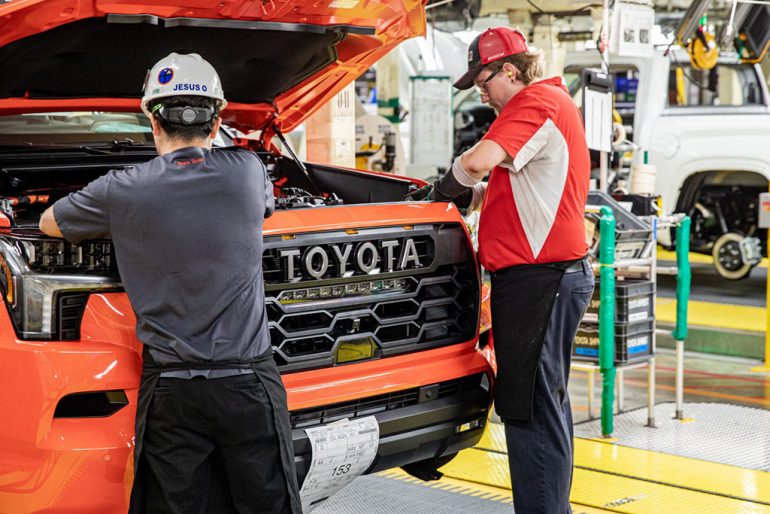
According to a recent Kerrigan Dealer Survey, trust in automotive brands among dealers varies significantly, with Toyota emerging as the most trusted brand and Ford being ranked as the least trusted. This survey, conducted anonymously with approximately 650 dealers between June and October 2023, reveals interesting insights into the industry’s dynamics and the role of trust in dealership operations.
The findings of the survey point to a stark divide in the level of trust that dealers have in different automakers. Nearly half of the surveyed dealers expressed a lack of trust in Ford Motor Co., making it the least trustworthy brand. The outcome is seen as consistent with concerns about Ford’s future profitability due to its strategy regarding electric vehicles (EVs) and future retailing approaches.
Also, don’t forget that you can get discounted new car pricing with a free quote through qualified local dealer partners.
Nissan followed Ford as the second least trusted brand, with 43 percent of dealers expressing their lack of trust, while Ford’s sibling brand, Lincoln, received a 40 percent score in the trust department. The Chrysler-Dodge-Jeep-Ram brand ranked next, with 39 percent of dealers expressing a lack of trust, and Infiniti rounded out the list as the fifth least trusted brand, with 37 percent of dealers lacking trust in the brand.
In contrast, Toyota stands out as the most trusted brand, with an impressive 72 percent of dealers expressing a high level of trust in the Japanese automaker. Following Toyota, other trusted brands include Lexus, Subaru, Honda, and Porsche.
This disparity in trust levels is influenced by various factors, including automakers’ strategies in rolling out EVs and their approaches to direct relationships with consumers. Toyota’s trustworthiness is attributed to its thoughtful EV strategy, which involves the gradual introduction of hybrid vehicles before full electric adoption. Dealers trust that Toyota will continue to prioritize a mutually beneficial relationship between the manufacturer and dealers, adapting to changing consumer preferences and technologies.
The trust that dealers have in their manufacturer partners is of great significance, particularly when determining dealership value. The survey also provides insights into dealers’ expectations for the next year, with a majority anticipating an increase in dealership valuations or, at the very least, expecting them to remain steady. Despite expectations of flat or lower earnings for 2024, a significant portion of dealers plans to expand their businesses, attributing this growth bias to the capital amassed during the past profitable years.
Furthermore, dealer discontent, primarily driven by concerns regarding EV strategies and an oversupply of EVs in dealership lots, has led to shifts in franchise value expectations. In general, each franchise has a lower percentage of dealers expecting increased value compared to the previous year. Franchises that are considered least likely to decline in value include Lexus, Toyota, Porsche, and BMW, with 90 percent or more of dealers anticipating an increase or stability in value.
Kia and Hyundai have consistently been ranked at the top for franchises with the highest expected valuation gains for 2024 for the second consecutive year. These brands are closely followed by Toyota, Lexus, and Porsche, reflecting the industry’s evolving dynamics.
Dealers also expressed concerns about automaker-initiated changes to dealer models, including over-the-air updates and agency models, potentially impacting dealership profitability. Ford’s proposed changes raised the most significant concerns, with 58 percent of dealers expressing a negative outlook. However, compared to the previous year, this survey indicates that dealers are less worried about automaker changes affecting profitability, attributed to skepticism regarding automakers’ execution of proposed retailing changes and EV strategies, given the current consumer demand for EVs.
Sources: AutoNews (subscription required), Kerrigan Dealer Survey